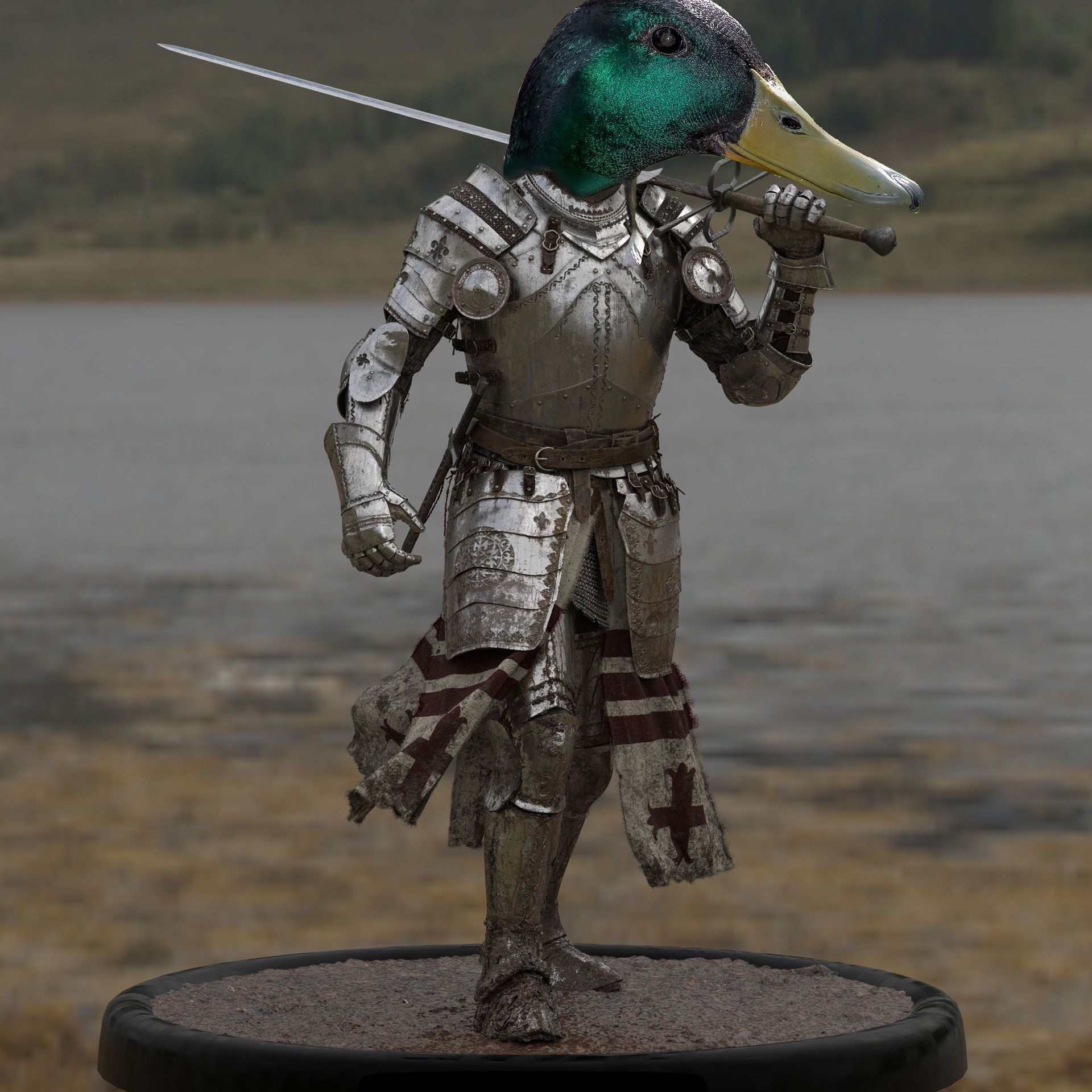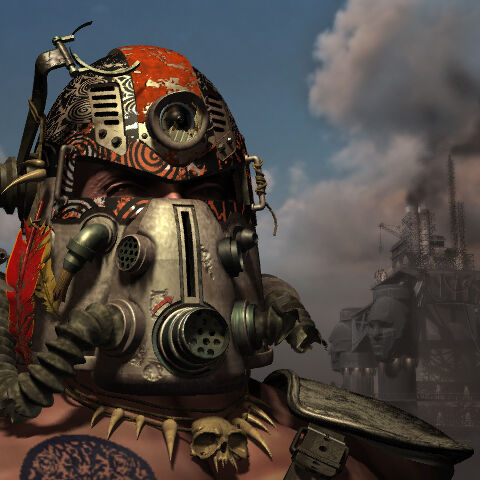I’m planning on switching to Linux on my main PC as I don’t want to move to Windows 11 and was curious about other people’s experiences doing so.
I have a Steam Deck and everything there works out of the box, but I imagine that’s a more curated platform compared to standard distros.
What are your experiences, good or bad?
I’ve been running Nobara on my machine for like a year and it’s been a really easy experience! The creator also maintains a popular build of proton and designed it to be pretty hands off.
I switched from Windows to Linux last year. I’m typing this on Ubuntu 25.04. All the games I have ever tried to play work, and work well, with very few exceptions.
Steam just works, all I had to do was go into its settings, the Compatibility, and enable Steam Play for all titles. I set the default compatibility tool to “Proton Experimental” and haven’t needed to change it. Even for the titles that say they don’t work on Linux.
Heroic Games Launcher handles my Epic and GOG libraries, and again, everything just works. Epic is not friendly to Linux users, and the only exceptions have been a couple of free games on Epic where the developers have gone out of their way to break Linux compatibility. Red Dead Redemption is the only game I would like to play, but haven’t figured out how to get it to work. Most of my Epic games work, including complicated ones like Train Sim World 5. All of my GOG games work without exception.
I use a program called Bottles to handle edge cases. It’s a little trickier to get set up, but once you’ve got it running, again, stuff just works.
Hope this is helpful. I’m happy to answer questions.
Thanks. I didn’t know about Bottles, that seems useful (mostly for non game software I guess).

This screenshot is just an FYI at some of your options. I’ve got bottles, PortProton, and the ProtonTricks launcher as options for any given EXE/MSI installer. Bottles is usually all that’s necessary but I have the others for super tricky stuff like embedded software development BS that would never be encountered by a normal person (haha).
It works well for games that just come as EXEs too, but I mainly use it for non-games, yeah.
All my games work, however I avoid games that require kernel level root kits to run so your mileage may vary.
If you ever have an issue with a game running under proton. Look up the game in ProtonDB and make sure to use the filter to match your hardware.
I get avoiding those games on principal… but is there any harm that can come from playing those through Linux?
Its a kernel level rootkit, so if you have that installed your computer is no longer yours. They could in theory, read your RAM and use it to read encryption keys and have full access to your system and you would never know.
A kernel level rootkit for windows though. What is it going to have access to in Linux? Isn’t it just reading Proton’s windows files that are created for each game ran through it?
They won’t run on proton. “Kernel-level” means it’s well below the level that Proton runs at.
Helldivers 2 runs fine through Proton with it’s anti-cheat. It was claimed to be kernel level.
My understanding is that actual kernel-level software would have to at least have a Linux-specific driver included. Otherwise if it really is running entirely through Proton, it’s somehow faking the ring 0 access. I’m not entirely sure, but I do think that anti-cheat must work differently from the big ones like FACEIT and Valorant.
You may be right, but I don’t know enough about proton to say it’s a well isolated sandboxed environment. I’d rather not have it on my PC at all.
Running Steam games on Mint, I don’t think I’ve ever run into a game that flat-out didn’t run. Usually they work out of the box. The most I’ve ever had to do was select “Force the use of a specific compatibility tool” and try out a different version of Proton from the dropdown list.
It’s been remarkably unproblematic.
FANTASTIC! I love that 100% of the games I want to play work great without issue but what I love even more is the conveniences that Linux provides over Windows:
- It is trivially easy to sync my configs/saves/game data across my network to different PCs with
rsync -ave ssh(i.e. if I want to play on the big screen via the HTPC). - I can do the same with my phone using the FolderSync Android app (which supports sync over SSH just like rsync).
- I can script stuff! Example: A lot of games (especially those with 3rd party mods) can be buggy AF and as a result of that, increase the possibility of corrupting my saves/game/world data. For these games I use
rdiff-backupright there in the save/game/world directory every 10 minutes with say, 100 backups. Put that in a cron job and the worst that happens is I lose 10 minutes. - If the game has a server, chances are there’s already a native Linux version which means I can run it locally on my PC in the background or just sync my whole game over to another of my Linux PCs and run it there. No need for complicated setups where you have to manage things across two completely different operating systems (like Windows 11 and Windows Server 2025 ahahaha; that’s a joke poking fun at the Windows ecosystem if you don’t get it 🤣).
- I actually have the power to control where my sound goes on the fly and it actually fucking works (unlike Windows where you get to pick one device at a time and good luck keeping that one active if you have a Bluetooth audio device that likes to lose its connection from time to time… Ugh). You can actually do weird shit like send your audio over the network to a whole home’s worth of PCs (or stream it over the Internet I guess) but I only ever did that once and man was it cool, haha. Still, it’s nice to have the option (some open source dev worked really hard to make sure that works; and fantastically well too).
- Multiple applications can use the GPU at the same time (if you’re using Wayland) and that actually works properly. Unlike in Windows—where if you enable “hardware acceleration” in an app like Discord it can suddenly become slow AF scrolling when you’ve got a game open in the background.
- You have vastly more control over gamepad/controllers in Linux than you do in Windows. In Windows—if your controller is detected properly (which hopefully doesn’t require that you download a ~4GB of driver/bloat app bullshit)—you can test the buttons in the Settings/Control Panel. But that’s all you can do. The X button is the X button is the X button. You want that button to send something else? You need sketchy proprietary 3rd party software for that! In Linux, you can do whatever TF you want with that button and there’s several ways to do it (qjoypad gives you a nice GUI—right there in your distro’s repositories for quick install).
- No “You need to reboot your computer” popups in the middle of gaming/streaming!
- You don’t need sixteen bloated system tray/processes running at all times (slowing down your PC) to keep all your stuff working! If you use a Linux desktop for a few weeks then go back to Windows you’ll get annoyed AF pretty fast at all those pop-ups, “Why did I put up with this BS?” 🤣
- Privacy by default: HP, Nvidia, Dell, Logitech, Razer, and Microsoft can’t see that you’re playing that game that just got banned by MasterCard/Visa 🤣
Also—generally speaking—Linux is just more fun to use! Customize TF out of your desktop experience. The only thing stopping you is… you.
Is there a co-pilot like function that can pair two controllers together? That feature with my Xbox Adaptive Controller is kind of keeping me on Windows. Or I have to give up those games.
I don’t understand what you mean, how do you do this in Windows?
Through the Xbox Accessories app you can enable co-pilot mode between two Xbox controllers. So both are seen as one device. So I can use Left trigger and right trigger with my feet on the XBAC while keeping my controller in my lap and disabling the triggers on it so they are accidentally pressed.
Hmmm okay I understand. There might well be a dedicated program for this, but I’m also sure it’s technically possible, just maybe far from trivial.
A bit of searching turned up this, I haven’t tried it myself but it claims to offer the functionality you want: https://sourceforge.net/projects/linuxjoymap/
Ooh this looks like it has some potential. I’ll give it a shot. Thanks so much!
- It is trivially easy to sync my configs/saves/game data across my network to different PCs with
I’ve been gaming exclusively on desktop Linux for more than a decade.
All my games work, either natively or (more often) using some variant of Wine. Most Steam games work with very little tweaking or none at all.
I occasionally have to apply workarounds for broken Battle.net updates (I run Blizzard games without Steam) but this doesn’t happen very often and usually only takes a couple days for the community to figure out a workaround. The last few updates haven’t broken anything new.
Games with certain anti-cheat systems, especially kernel-mode ones, are known not to work. I don’t care, because I wouldn’t allow such invasive and dangerous things to run on my hardware anyway.
Welcome to the party!
I use Arch and its fantastic! Sure some of the multiplayer games with bullshit DRM won’t work (only because the companies will ban you even though the tech is working as expected FU EPIC)
Once you get your system functioning the way you want it, you almost never have to worry about a patch breaking your shit. That is unless you customized your video drivers or the kernel.
I’m a noob when it comes to gaming on Linux, having to rely on WINE just working without any changes or Proton on Steam if there’s no Linux port. Still learning how to do more advanced things with WINE rather than just run and hope the program works.
So far I haven’t had any major issues with getting games to play, except for a couple old PC games I found on MyAbandonware that probably need some extra work to work properly. Doesn’t display correctly or play the music for either. Otherwise, my experience has been pretty good.
As for distro side of things, I don’t know, outside of SteamOS on my Steam Deck, I have no clue on what’s happening in the games sphere. I just have Steam downloaded from either my package manager or flathub and call it good there.
Oh, and I also have the native Itchio storefront program and it works just fine as long as I don’t change the language to a certain language because it’ll just cause sorts of problems ( probably due to me not having a language pack for it installed ). The one visual novel I’ve played on Itchio on my laptop worked just fine out of the box, but I assume that’s more or less thanks to the devs.
Switched my main gaming computer in 2023, never going back.
Very good experience to the point that I hate to use Windows at work because I just love the Gnome way of navigating my PC. Windows just sucks now 😅
Looks like I’ll be the negative one. I gave it a solid try dual booting for about 6 months before I went back to Windows.
I think I took for granted how much is abstracted away in Windows when it came to being my daily driver for my computer. Wrapping my head around things that “just worked” in Windows proved to be more difficult than I anticipated and I dealt with more friction. Trying to learn new concepts stood in my way of fully embracing it as well as not understanding what the “Windows equivalent” was for a given feature/function/action so I could wrap my head around it better. I also had a couple of workflows that I never got working in Linux despite all my attempts at searching for answers.
And I know people will come out of the woodwork with all sorts of questions or input on how if I just tried it again I’ll get it. For the record, I tried out Pop OS since it bills itself as a dead simple. I know the problems for me were more around my knowledge, years of built up muscle memory with Windows, and limited time to game so messing with whatever my current problem was made it more frustrating and soured me on the experience.
Without context this is pretty useless for OP. It sounds like you have some exotic non-gaming-related workflows and without knowing what those are it’s impossible to say if they’re anything OP would ever need to deal with.
For gaming the only non-starter at this point is games that the devs have chosen to make not work on Linux, i.e. ring 0 anti-cheats and a few other games made by assholes like Fortnite. VR is also hit and miss, for some people/systems it works nearly out of the box, for others it might be a big pain.
Honestly, it’s my assessment of turning my only PC, which is primarily gaming, into a Linux machine and the struggles there with day-to-day usage. I have no idea what OP’s comfort level with Linux or tech is in general but my assumption is it’s enough to think “Yeah, I could install Linux and do this.” which was where I was at too. Nothing I’m doing was exotic but the investment required in finding suitable alternatives that worked nearly out of the box was too high at the time.
Gaming was decent by all accounts. I think I had a few compatibility items that will iron out as developers support Linux more and the technology that enables gaming on Linux just gets better and better. I have an AMD card and from what I gather that’s better for switching to Linux. A lot of my frustrations were not related to gaming and I recognize the issue is time and knowledge on my part. If those are in short supply when something breaks, you could have a bad time is all I’m saying. Everyone’s got to start out somewhere and if you’ve had Windows forever, it can be a mental shift.
If that was more than a year ago it might be tine to try again with Bazzite or Nobara; the latter being my personal choice.
Both were on my radar as well. I want to say I tried Bazzite before Pop but one of those workflows I could not solve was a problem on Bazzite (some virtual kvm switch software I’ve used forever). Nobara was almost where I went after Pop before retreating back to Windows :)
Could you give some examples of things that worked for you on Windows but couldn’t port over to Linux? I’m interested if they’re related more to games or just using Linux in general.
I am playing almost exclusively in linux since 2012 (diablo3 came out, it worked on Linux, i sank an ungodly amount of hours into it.) the only thing that made me reinstall windows was to play counter-strike go on faceit, because their client did not work on linux.
proton made so much, so much easier that it almost became frictionless to play on linux. wine made huge strides before, but it never was so smooth before proton.
what often was a problem where laptops with dedicated and integraded graphics cards, or nvidia cards on rolling release distribution often having issues after kernel updates, which is why i was on fedora for a long time, because there the akmod stuff worked better in my experience.
overall: when it works on the deck its almost guranteed that it runs just as easy on other linux distributions, maybe don’t pick a rolling release distro if you have an nvidia card, and most of the time you can forget about the fact, that you are gaming on linux.
I’ve only had problems with two games.
A game called OneShot, which has some meta things as part of the game. Like, it’s supposed to change your wallpaper and such “outside the game” things. No biggy, just had to run an executable with a specific version on Wine and it worked as intended.
The other was Vermitide 2, never got around to finding a solution for that one, as I honestly didn’t care enough to find out what the problem is.
Everything else has worked splendidly.
Addendum: getting Blizzards Launcher work was a bitch though. Thankfully, Steam provides.
So far, everything mostly works. Occasionally I have to tinker with some environment variables to get some games working, but so far everything I have tried has been playable.
I have ryzen 5800x3d, 32 GB ram, rtx3090, 1440p 120hz gsync screen, nvme + bunch of other drives. Running Arch (wayland, kde plasma), games installed from steam/gog + few standalones from regular installers. Mostly I use proton-ge, but some games run fine with just wine. ntsync + wayland enabled.
some games (eg. PEAK) have MASSIVE flicker unless I explicitly disable wayland support for them (PROTON_ENABLE_WAYLAND=0), and then it’s fine.
Only thing really lacking is performance, eg. Cyberpunk 2077 with RT is slower than on Win10. It still does about 60 fps, but the dips below are way more harsh. AFAIK this is a thing accross the board with DX12 games with current nvidia driver, supposedly there’s a fix cooking, but we’ll see.
I don’t play competetive pvp games at all, so I can’t speak for those. But so far friends only co-op & single player games have worked just fine.
Hmm, I haven’t had this issue with Peak and I’m running Wayland… But I do run AMD.
are you using the env variable to enable it for the game? AFAIK it’s not enabled by default, and It dawned on me that I have it enabled on
/usr/share/steam/compatibilitytools.d/proton-ge-custom/user_settings.py(the config file for proton-ge). But it could still be nvidia issue, wouldn’t surprise meAhh okay no I’m pretty sure that isn’t being explicitly enabled.
Switched last year from Win 11. Had some previous experience with Ubuntu and Mint but wanted to try Arch. I ended up with EndeavourOS, which is Arch based. At that time I had some things to learn about making my Nvidia GPU run and run properly. But there were some new drivers coming out alongside Nvidia partially opening up to the Linux crowd. Together with further advancements in Proton it’s been mostly smooth sailing I’d say.
Games on Steam mostly run out of the box. There might be some, that need another Proton oder GE-Proton version but those are easily switched/installed. You can always look up if games need certain tweaks on protondb.com I’ve even got Fallout 4 with 300+ mods (managed by Nexusmods / Vortex) to run. Currently playing Stalker 2 with some mods and “it just works”. I even managed to manually inject DLSS 4 to Stalker 2 so the really bad ghosting is far less.
Lutris or Heroic Launcher work for GOG, Uplay and EA Access (or whatever it is called nowadays).
There are a few games, like Icarus, that run like shit generally but even worse on Linux. Also, when using Steam / Proton, every time you change shaders they need to be pre-rendered. Usually that also happens when there’s been an update. Most of the time that doesn’t take long but I had singular games where that took 30+ minutes. And then there is an increasing number of games that run kernel level anti-cheat. Games like CoD 7 (I think), Valorant or the upcoming Battlefield 6. They straight out can’t be played on Linux. It sucks, because I wanted to play BF6 with friends but I just have to pass this one. Anticheat shouldn’t run on kernel level anyways. Speaking of anticheat: I think (please correct me if I’m wrong) BattleEye also doesn’t run on Linux. EAC does, but it needs to be enabled by the devs for Linux. Squad or Hell Let Loose run EAC and have it enabled for Linux and it runs fine. SCUM and Rust don’t have it enabled so you either have to play on servers that don’t use EAC or on specific linux compatible servers (there are some in Rust).
BattleEye and EAC have both worked on Linux since 2021. Any games that use those at this point but don’t support Linux are choosing to block the platform (e.g. Fortnite).
Does BattleEye in general just work or does it require fiddling? One of my main games uses it, so that is a big factor in me not having made the jump yet. (The others are an NVidia GPU and my absolute dread to have to get around to actually clean up my files)










